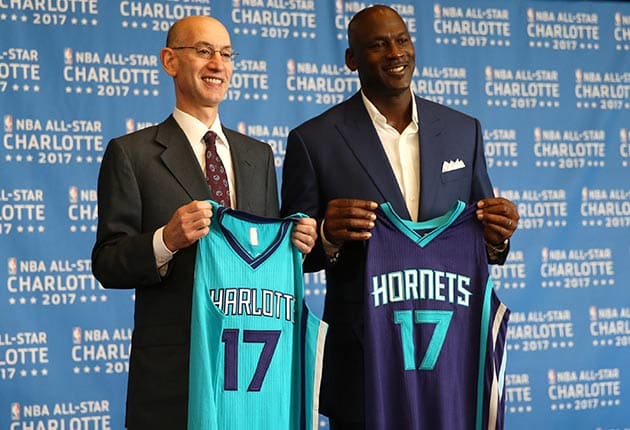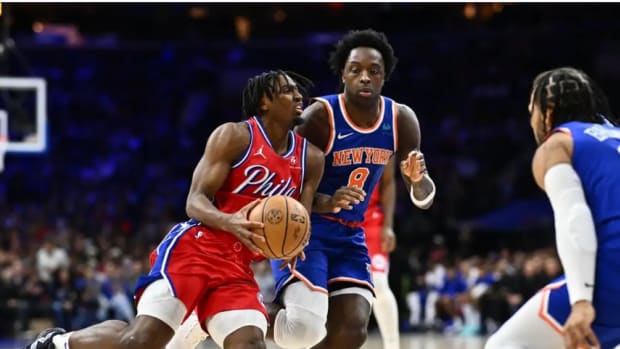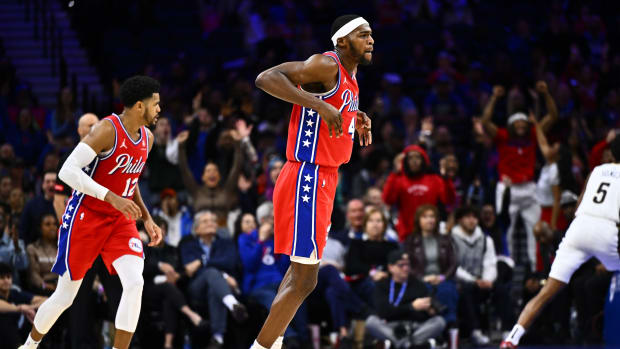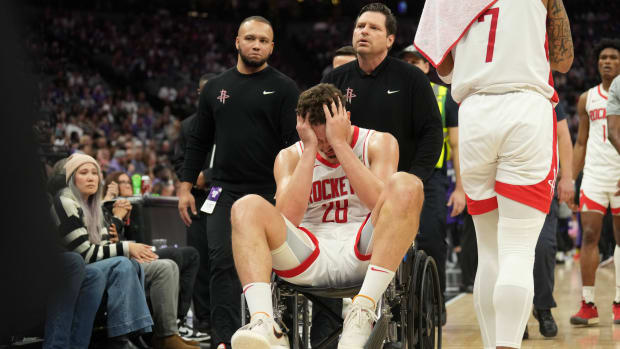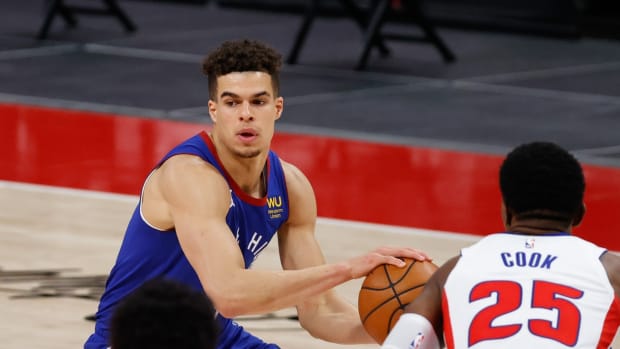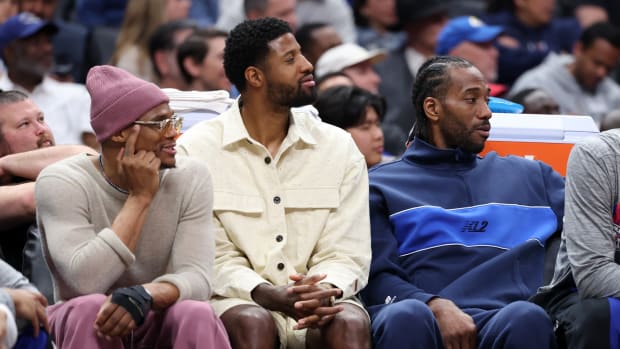The NBA chooses sanity, moves 2017 All-Star Game out of Charlotte
Your teams on the go or at home. Personalize SI with our new App. Install on iOSor Android.
In late March, the North Carolina General Assembly called a special session, and passed a law called the Public Facilities Privacy and Security Act. It would come to be known as "the bathroom bill," or House Bill 2, and eventually, HB2. On Thursday, that bill cost Charlotte the 2017 NBA All-Star Game. As the NBA's statement announced: "While we recognize that the NBA cannot choose the law in every city, state, and country in which we do business, we do not believe we can successfully host our All-Star festivities in Charlotte in the climate created by HB2."
The decision comes two years after the city approved $33.5 million for improvements to the Hornets arena. It will reportedly cost the city $100 million in lost revenue. And it was the definitely the right decision for the NBA. It was good business and smart marketing, and in this case, I'm pretty sure the right answer was also the obvious answer.
To understand why, it helps to look closer at the law in question. Yes, HB2 has become infamous as "the bathroom bill" because it prevents transgender people from using the bathroom of the gender with which they identify. But the policy goes much further than bathrooms.
The law also establishes a statewide anti-discrimination policy that refuses to recognize LGBT citizens as a class that would be protected from discrimination under the state policy. It prevents cities and counties across North Carolina from passing local anti-discrimination standards, should cities like Charlotte seek to broaden laws to protect gay citizens from discrimination.
• Michael Jordan, Stephen Curry react to 2017 NBA All-Star Game move
An additional clause makes it impossible for any city or county to raise the minimum wage beyond the state standard. Furthermore, the law altered legislative language that has been effective since 1977, adding a clause that limited the ability of any minority group—gay, lesbian, black, Muslim, etc.—to pursue discrimination suits in North Carolina state courts. That final clause was eventually repealed, but the broad scope and appalling spirit of the law remains. The ACLU called it the "most extreme anti-LGBT measure in the country." It’s plainly unconstitutional, and it was presented and passed in a matter of hours, in attempt to avoid public scrutiny.
“The bathroom issue has become a little bit of a distraction,” Adam Silver said in June. “From the very beginning, that was not the core issue. It was protection for the LGBT community in terms of economic rights, personal rights.”
Likewise, while Charlotte will be at the top of every story about the NBA's move, it has to be noted that none of this is the city's fault. The HB2 law only exists because Charlotte passed its own anti-discrimination measure, as the city council sought to expand existing laws to prevent bars, restaurants, hotels, and taxis from discriminating based on gender or sexual orientation.
Once Charlotte passed its local law, North Carolina Governor Pat McCrory warned of transgender citizens using the wrong bathrooms, and pledged to repeal it. That ultimately gave way to an emergency legislative session, HB2 and its sprawling implications, and the NBA's decision this week.
That timeline is also why McCrory's response to the league's decision rang so hollow Thursday. The governor concluded his statement with: "American families should be on notice that the selective corporate elite are imposing their political will on communities in which they do business, thus bypassing the democratic and legal process."
What world is he talking about? The NBA was never imposing its political will on the community of Charlotte. That city sought to protect LGBT citizens all along. Everyone was on the same page, including Michael Jordan and the Hornets. The problem was a governor and the state legislature imposing their own politics on Charlotte, running roughshod over the city council's democratic process. Ultimately, it cost the city $100 million, and it embarrassed the state.
For the league's part, Adam Silver's office communicated "almost daily" with the Hornets in an attempt to find a compromise. Having failed, he's pledged to consider Charlotte for the All-Star Game in 2019, provided HB2 is altered or repealed by then. But in 2017, the NBA will look elsewhere.
The move comes after months of rumors, and sporadic criticism of the law from the league, the Hornets, and public calls to action from people like Stan Van Gundy. "Look, we are in 2016," Van Gundy said in April. "And the idea, for any reason you conjure up, that you have the right to discriminate against people ... I think it's against what we stand for. I think the league should take a stand."
For what it's worth, the league didn't have to take that stand. Silver probably could have proceeded with All-Star festivities in Charlotte without much problem. There may have been sporadic protests and a few tough questions, but the damage would have been minimal. Major League Baseball faced a similar scenario leading up to its All-Star Game in Arizona in 2011. After wading through protests and deciding against relocation, by the time the festivities arrived, the controversy barely registered.
• Column: Durant finding piece despite being the center of attention
Instead of following that blueprint, the NBA sent a concerted message. If Charlotte didn't have the power to hold the state government accountable for its laws, the NBA and its billion-dollar business would. It was surprising because we rarely see corporations act on threats like this. It was encouraging because it comes at a time when hostile rhetoric has escalated all over the country, and in this case, hostility had real consequences.
Critics will complain that the NBA is advancing its own progressive agenda, injecting politics into entertainment that's supposed to be an escape from the real world, etc. But this really wasn't about Democrats and Republicans. This was about basic decency, and sanity.
Team USA coach Mike Krzyzewski is a lifelong Republican and noted critic of Barack Obama, and he was unambiguous about the North Carolina law. "It’s an embarrassing bill,” Krzyzewski told USA Today in Las Vegas this week. "That’s all I’m going to say about it."
That's all anyone needs to say.






























